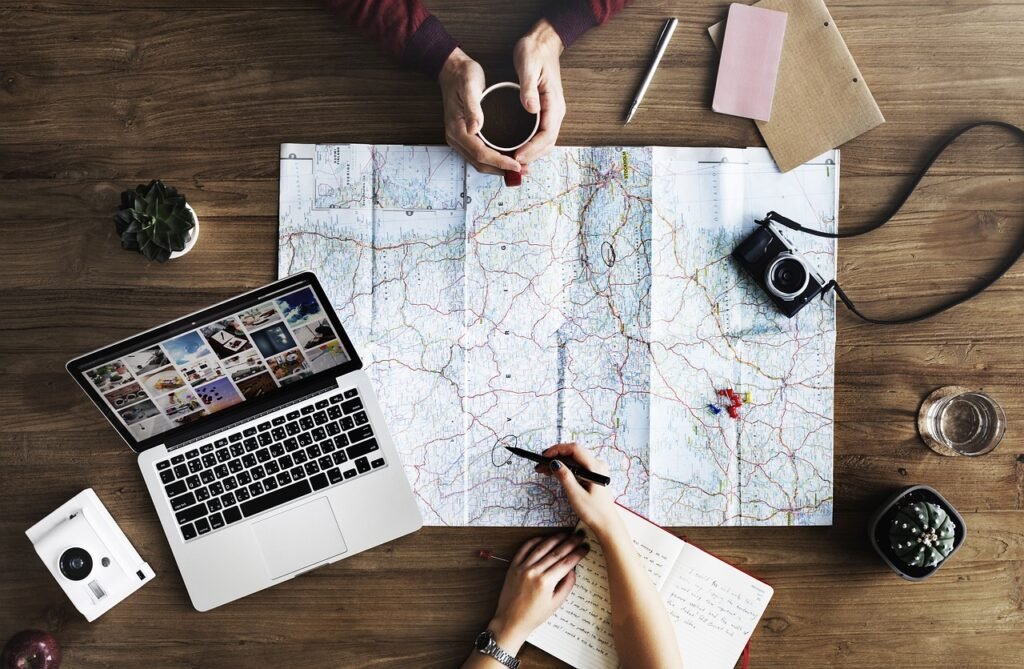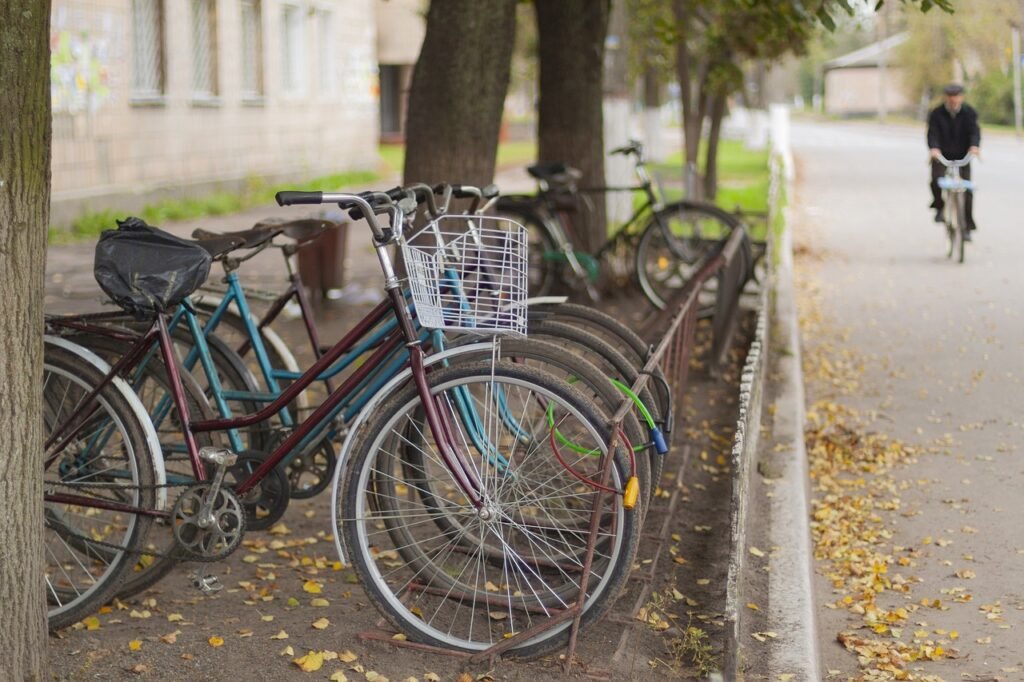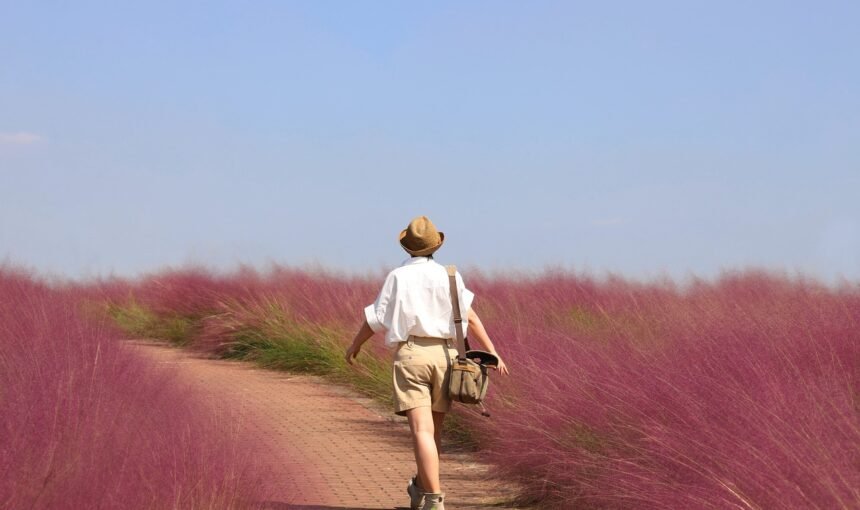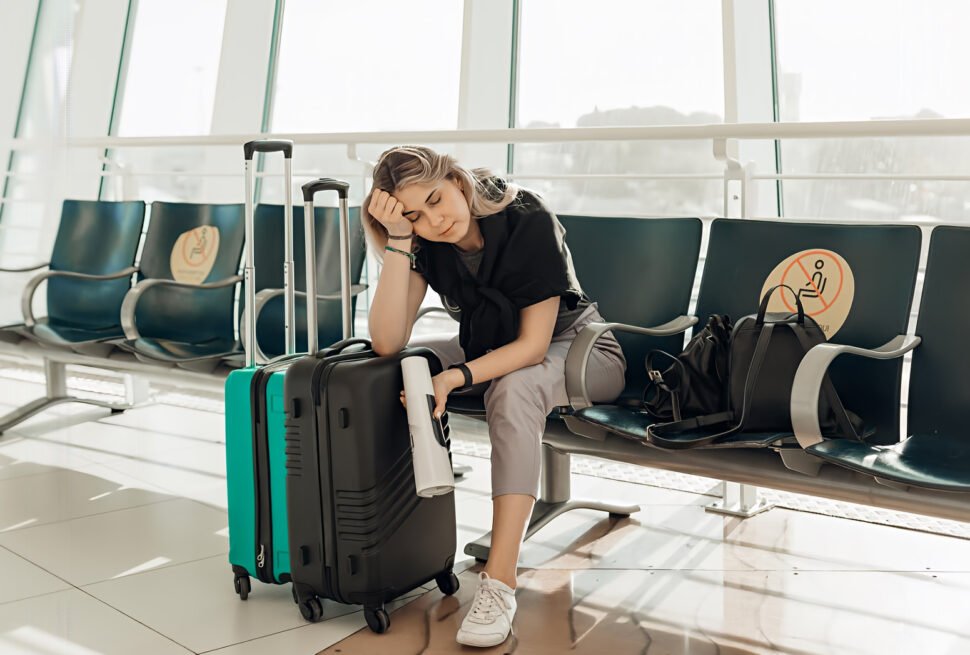Traveling on a budget is all about experiencing the world without spending a fortune. It’s appealing because it shows that you don’t need to have a huge bank account to explore new places, try local foods, and meet people from different cultures. Whether you’re a student, someone who’s trying to save, or just love the thrill of stretching your money, budget travel opens up a lot of possibilities.
For beginners, though, it can feel a bit overwhelming. There’s always the worry of overspending, getting lost, or missing out on great experiences because you’re trying too hard to save. But with a little planning and the right strategies, you can avoid those pitfalls. That’s where these travel tips come in—they’re here to help you make the most of your trip without breaking the bank. From finding cheap flights to picking the right accommodation, these tips will make your budget travel not only affordable but also enjoyable.
Planning and Research

1. Book in Advance
One of the easiest ways to save money on travel is by booking your flights and accommodation early. Airlines and hotels often offer lower prices when you book well in advance, especially if you’re traveling to a popular destination. The closer you get to your travel date, the higher the prices tend to climb, so locking things in early can save you a lot of cash. Plus, it gives you peace of mind knowing that your major expenses are already covered.
2. Use Travel Deal Websites
There are plenty of websites and apps out there that specialize in finding travel deals. Platforms like Skyscanner, Kayak, and Google Flights let you compare prices across multiple airlines, while others like Secret Flying or Scott’s Cheap Flights send alerts when there’s a significant drop in airfare. These tools make it easier to score discounts without constantly checking yourself.
3. Travel During Off-Season
If you’re flexible with your travel dates, consider going during the off-season. Not only are flights and accommodation cheaper, but you’ll also get to avoid the tourist crowds. Off-season doesn’t necessarily mean bad weather—sometimes it just means fewer people, lower prices, and a more relaxed experience. Just do a little research to ensure attractions or activities you want to do will still be open.
4. Flexible Dates and Destinations
Being flexible with your travel plans can lead to big savings. Instead of picking fixed dates and locations, try searching for the cheapest time to fly or the least expensive destinations that fit your interests. Flexibility can help you land last-minute deals, and you might even discover somewhere new that wasn’t originally on your radar.
5. Sign Up for Travel Alerts
Another way to stay on top of deals is by signing up for airfare alerts. Websites and apps like Hopper or Airfarewatchdog can notify you when flight prices drop. You can set alerts for specific destinations or simply monitor general price trends. It’s a low-effort way to stay in the loop and catch a great deal when it pops up.
Budget-Friendly Transportation

6. Use Public Transport
When you’re trying to save money, public transport is your best friend. Buses, trams, and subways are almost always cheaper than taxis or rideshare services like Uber. Plus, they give you a real sense of the local culture. It might take a little more time to figure out the routes, but it’s worth the savings. Many cities even offer day passes or travel cards that give you unlimited rides for a set price, which is a great deal if you’re planning to explore all day.
7. Consider Budget Airlines
If you’re flying between destinations, budget airlines can save you a lot of money. Airlines like Ryanair, EasyJet, or Spirit offer cheap flights, but you’ll need to be mindful of extra fees. Make sure you understand the luggage policies to avoid any surprises. Also, compare prices across multiple sites like Google Flights and Skyscanner, as they often list deals you might not find directly on the airline’s website.
8. Travel Overnight
Combining your transportation and accommodation is a great way to save money. Overnight buses and trains can be a lifesaver on long trips. You pay for your travel while avoiding the cost of a hotel room for the night. It might not be the most luxurious option, but it’s budget-friendly and lets you wake up in a new place, ready to explore.
9. Walk or Bike When Possible
Walking or biking is not only free, but it’s also a great way to take in a new city at your own pace. Many cities have bike-sharing programs or rental shops, which are affordable alternatives to taxis or public transportation. Plus, it’s a healthier option that lets you stop and explore off-the-beaten-path spots you might miss otherwise.
10. Carpool or Rideshare
If public transport isn’t available, carpooling or using rideshare services like BlaBlaCar can be a cost-effective alternative. These services allow you to split the cost of a ride with other travelers heading in the same direction, cutting down on costs while offering a more convenient travel experience than public transport.
Affordable Accommodation

11. Stay in Hostels
Hostels are a go-to option for budget travelers. Not only are they cheaper than hotels, but they’re also great for meeting other travelers. Many hostels offer dorm-style rooms, which are perfect if you don’t mind sharing space with others. They often have common areas where you can socialize, swap travel stories, or even cook your own meals in a shared kitchen. Plus, some hostels offer private rooms if you want more privacy without the high cost of a hotel.
12. Consider Airbnb or Short-Term Rentals
For groups or longer stays, Airbnb and other short-term rental options can be much more affordable than hotels. You’ll often get more space for your money, plus the added benefit of a kitchen, which can help save on food costs. It’s also a good option if you want to experience living like a local, especially in quieter, less touristy neighborhoods.
13. House Sitting or Couchsurfing
If you’re looking for free accommodation, house sitting and Couchsurfing are two great options. House sitting involves watching over someone’s home (and sometimes pets) while they’re away, and Couchsurfing connects you with locals willing to offer a free place to stay. Both options are budget-friendly and give you the chance to experience a destination from a local’s perspective.
14. Look for Discounts on Hotels
If you prefer the comfort of a hotel, there are still ways to save. Many hotels offer discounts through loyalty programs or by booking with travel rewards points. Credit cards with travel rewards can also help lower costs. Keep an eye out for promotions or deals on websites like Booking.com or Hotels.com, where last-minute offers or discounts can pop up.
15. Camping as an Option
For the more adventurous traveler, camping can be an incredibly affordable option. If you’re heading to a destination known for its natural beauty, campsites are often much cheaper than any other type of accommodation. In some places, you can even camp for free in designated areas. Just be sure to pack the right gear, and you’ll not only save money but get closer to nature too.
Budget-Friendly Food Options

16. Cook Your Own Meals
If you’re staying somewhere with a kitchen, like an Airbnb or a hostel, cooking your own meals can save you a lot of money. Instead of eating out for every meal, you can visit local grocery stores or markets and prepare food yourself. It’s especially useful for breakfast or lunch, leaving you more flexibility to try local restaurants for dinner. Plus, cooking your own food gives you more control over what you’re eating, which can be a bonus for health-conscious travelers.
17. Eat Local Street Food
One of the best ways to experience a new culture is through its street food. Not only is it cheaper than eating in restaurants, but it’s also often more authentic. You’ll find local dishes at a fraction of the price, and many times they’re freshly made right in front of you. Whether it’s tacos in Mexico or noodles in Thailand, street food is a great way to enjoy local flavors without breaking the bank.
18. Avoid Tourist Restaurants
Restaurants in popular tourist areas tend to be overpriced and cater to foreign tastes. If you want to save money and enjoy more authentic food, venture a bit further away from the main tourist spots. You’ll often find better food at local prices just by walking a few blocks away from busy attractions. Ask locals for recommendations, or look for places where you see more residents than tourists.
19. Bring Snacks
Having snacks with you while exploring can save you money on impulse buys. Whether you’re hiking or just walking around the city, bringing snacks like fruit, nuts, or granola bars can help keep you energized without the need to stop at overpriced cafés or kiosks. It’s also handy to have snacks on hand during long travel days.
20. Drink Tap Water (Where Safe)
In countries where tap water is safe to drink, carrying a reusable water bottle can save you from spending money on bottled water. In places where tap water isn’t safe, consider bringing a water purification bottle or tablets to avoid the cost and environmental waste of buying plastic bottles. Staying hydrated is important, and this small adjustment can make a big difference in your budget over time.
Smart Spending While Traveling

21. Create a Daily Budget
It’s easy to lose track of spending when you’re traveling, especially with all the temptations around. That’s why setting a daily budget is so important. Decide ahead of time how much you want to spend on food, activities, and transportation each day, and stick to it. Having a clear limit helps you avoid blowing through your money too quickly and ensures you can enjoy your trip without worrying about running out of cash halfway through.
22. Use a Travel Rewards Credit Card
If you’re going to be spending money on flights, hotels, and meals anyway, why not earn points while you’re at it? A good travel rewards credit card can help you rack up points or miles that you can use for future trips. Some cards also offer perks like free travel insurance, no foreign transaction fees, or access to airport lounges. Just be sure to pay off your balance to avoid high interest rates.
23. Negotiate Prices (When Appropriate)
In some countries, haggling is a common practice, especially in markets or when booking tours directly with locals. Don’t be afraid to negotiate prices, but do so politely and respectfully. You might be able to get a better deal on souvenirs, excursions, or even accommodations just by asking. However, always know when it’s appropriate to bargain, as it’s not customary everywhere.
24. Free Walking Tours and Attractions
Many cities offer free walking tours that are a fantastic way to explore and learn about a new place without spending a lot of money. These tours are usually led by locals who work for tips, so you can pay what you think the tour was worth. Also, keep an eye out for free attractions like museum days, public parks, or local festivals, which can be just as enriching as paid experiences.
25. Limit Souvenir Shopping
Souvenirs can quickly eat into your travel budget if you’re not careful. Instead of buying loads of trinkets, focus on practical items you’ll actually use or small keepsakes that don’t cost much. Another option is to skip material souvenirs altogether and invest in experiences instead. After all, the memories you make on your trip are far more valuable than a t-shirt or magnet.
Traveling on a budget doesn’t mean missing out on great experiences—it’s all about planning ahead and staying flexible. By doing a bit of research, sticking to smart spending habits, and being open to different options, you can explore the world without draining your bank account. The key is finding the balance between saving money and enjoying the journey. With the right mindset and these tips, you’ll discover that traveling on a budget can be just as rewarding, if not more, than splurging on every little thing. So get out there, have fun, and make the most of your adventure without worrying about the price tag.
Adrenaline junkie with a passion for exploring off-the-beaten-path destinations and finding unique ways to stay active. Expect stunning scenery, challenging workouts, awesome travel tips and a whole lot of fun. Let’s get sweaty and explore the world together!




